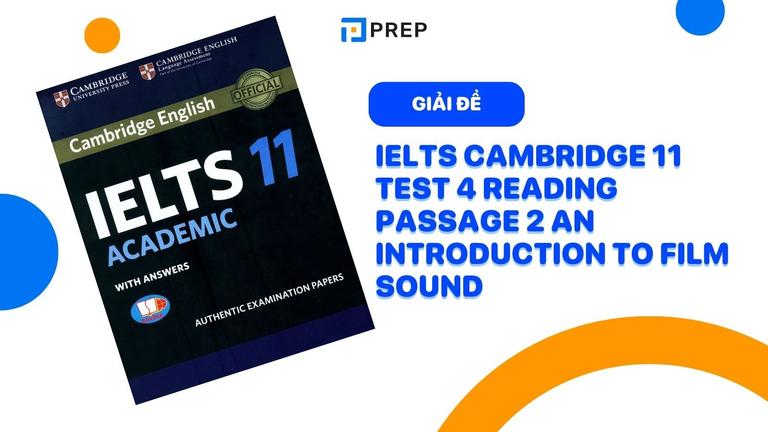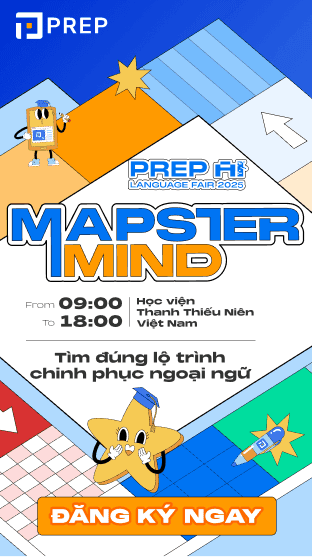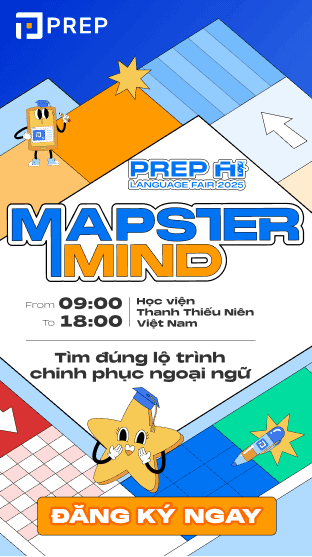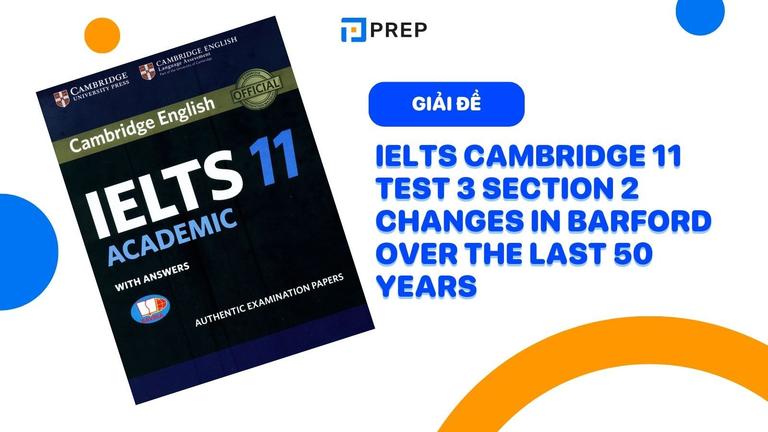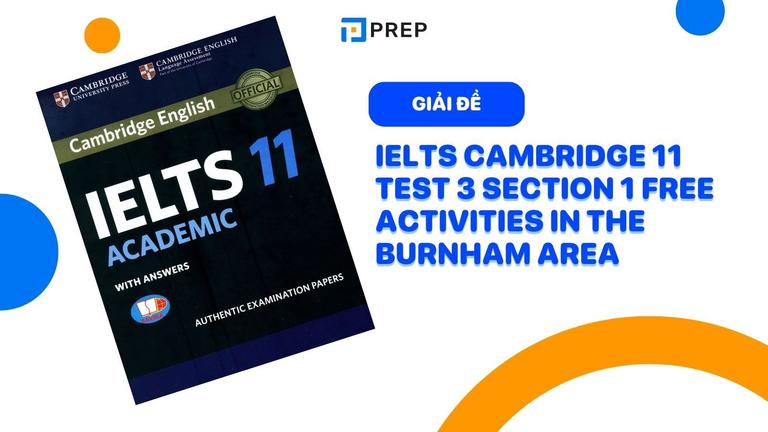Đề bài, bài mẫu IELTS Writing Task 2 chủ đề: Not enough students are choosing to study science as a subject
IELTS Writing Task 2 Not enough students are choosing to study science as a subject là một đề bài mới xuất hiện trong kỳ thi IELTS thực chiến gần đây. PREP đã tổng hợp dàn ý, từ vựng và bài mẫu band 7.0+ ở bên dưới, cùng tham khảo bạn nhé!

I. Đề bài IELTS Writing Task 2 Not enough students are choosing to study science as a subject
Đề bài: You should spend about 40 minutes on this task. Write about the following topic:
It is observed that in many countries, not enough students are choosing to study science as a subject. What are the causes? And what will be the effects on society?
Give reasons for your answer and include any relevant examples from your own knowledge or experience.
Write at least 250 words.

II. Dàn ý IELTS Writing Task 2 Not enough students are choosing to study science as a subject
Dàn bài IELTS Writing Task 2 Not enough students are choosing to study science as a subject được chia ra làm 4 phần: Introduction, Causes, Consequences, Conclusion & Opinion. Cụ thể nội dung của các phần này là:
|
Dàn ý IELTS Writing Task 2 Not enough students are choosing to study science as a subject |
|
|
Introduction |
|
|
Causes |
|
|
Consequences |
|
|
Conclusion & Opinion |
|
III. Bài mẫu IELTS Writing Task 2 Not enough students are choosing to study science as a subject
Dưới đây là bài mẫu IELTS Writing Task 2 Not enough students are choosing to study science as a subject band 7.0+ được biên soạn bởi giáo viên hạng A tại PREP. Ngoài ra, phía cuối là một số từ vựng ăn điểm phù hợp với chủ đề, bạn có thể lưu lại để học tập hiệu quả nhé!
In many countries these days, there are noticeably fewer students opting to study science subjects, causing a significant concern. This decline stems from several causes, and if left unchecked, it is likely to become a threat to human development.
There are certain explanations for the reduction in science enrolment. The principal cause is, perhaps, an aversion to difficulty among students. Even for typical fields such as mathematics, physics and chemistry, the intellectual rigors required can be staggering, and thus, many students would come to perceive them as arduous and demanding. Besides that, humanities and liberal arts disciplines present students with more comfortable choices. In higher education, business, language, and social studies are usually regarded as less intensive with respect to problem-solving, making them less strenuous overall. Taking these points into consideration, it is understandable that many students would look upon hard science subjects with tepidity and detachment.
This diminished interest likely presents two major threats to progress. A foreseeable impact, firstly, is the shortage of skilled scientists and technological innovators. This deficit would undoubtedly stall research and development, limiting a society's ability to solve complex problems or produce solutions for improving human life. Even more detrimental, however, is that such a lack of interest may disintegrate the complex infrastructural systems that many people seem to take for granted. Without enough technologically-minded workers, future generations will be ill-equipped to take over and maintain crucial infrastructure when its current custodians retire. Incidents such as power outages or plane crashes are avoidable, but will happen more and more in this scenario, throttling productivity and causing catastrophic damage. It could, therefore, be argued that human development will stagnate unless more students engage in the hard sciences.
In conclusion, the declining enrolment in scientific disciplines is a pressing issue. As its causes and consequences are clear, in order to reverse this trend, immediate attention and rectification are needed to induce a change in perception of the sciences.
Từ vựng sử dụng trong bài IELTS Writing Task 2 Not enough students are choosing to study science as a subject:
- Stem from sth (v.): bắt nguồn từ điều gì đó
- Unchecked (adj.): không bị kiểm soát
- Aversion (n.): ác cảm
- Intellectual rigors (n.): yêu cầu về trí tuệ
- Staggering (adj.): đáng kinh ngạc
- Arduous (adj.): gian truân
- Demanding (adj.): gắt gao
- Humanities (n.): khoa học nhân văn
- Liberal arts (n.): nghệ thuật khai phóng
- Strenuous (adj.): vất vả
- Tepidity (n.): sự lạnh lùng
- Detachment (n.): sự xa rời
- Deficit (n.): sự thiếu hụt
- Disintegrate sth (v.): phá hủy thứ gì đó
- Take sth for granted (v.): coi điều gì đó là hiển nhiên
- Ill-equipped (adj.): không được trang bị đầy đủ
- Custodian (n.): người duy trì, giám sát
- Power outage (n.): mất điện
- Throttle sth (v.): ngăn trở điều gì đó
- Catastrophic (adj.): khủng khiếp
- Stagnate sth (v.): làm trì trệ điều gì đó
- Pressing (adj.): cấp bách
Tham khảo thêm bài viết:
- Bài mẫu IELTS Writing Task 2 Work or travel after leaving school and before going to university
- Bài mẫu IELTS Writing Task 2 University students live at home or go to other cities rather than live with family
Bạn hãy lưu ngay bài mẫu IELTS Writing Task 2 Not enough students are choosing to study science as a subject band 7.0+ của PREP lại để tiện ôn luyện khi học tập tại nhà. Ngoài ra, bạn có thể dành thời gian mỗi ngày luyện tập qua khoá học IELTS của PREP để nâng cao trình độ Writing của mình bạn nhé!

Chào bạn! Mình là Hiền Hoàng, hiện đang đảm nhận vai trò quản trị nội dung sản phẩm tại Blog của website prepedu.com.
Với hơn 5 năm tự học các ngoại ngữ như tiếng Anh, tiếng Trung và ôn luyện một số kỳ thi IELTS, TOEIC, HSK, mình đã tự đúc rút được nhiều kinh nghiệm để hỗ trợ hàng nghìn người đang gặp khó khăn trong việc học ngoại ngữ. Hy vọng rằng những chia sẻ phía trên sẽ giúp ích cho bạn trong quá trình tự ôn luyện thi hiệu quả tại nhà!
Bình luận
Nội dung premium
Xem tất cảLộ trình cá nhân hoá
Có thể bạn quan tâm
Kết nối với Prep

MSDN: 0109817671.
Địa chỉ liên hệ: Tòa nhà Vinaconex, 34 Láng Hạ, phường Láng, TP Hà Nội.
Trung tâm CSKH tại HN: Lô 21 C2 Khu đô thị Nam Trung Yên, phường Yên Hòa, TP Hà Nội.
Trung tâm CSKH tại HCM: 288 Pasteur, Phường Xuân Hòa, TP Hồ Chí Minh
Trụ sở Công ty: Số nhà 20, ngách 234/35 đường Hoàng Quốc Việt, phường Nghĩa Đô, TP Hà Nội.
Phòng luyện ảo - Trải nghiệm thực tế - Công nghệ hàng đầu.
Hotline: 0931 42 8899.
Trụ sở Công ty: Số nhà 20, ngách 234/35 đường Hoàng Quốc Việt, phường Nghĩa Đô, TP Hà Nội.
Giấy chứng nhận hoạt động đào tạo, bồi dưỡng số 1309/QĐ-SGDĐT ngày 31 tháng 07 năm 2023 do Sở Giáo dục và Đào tạo Hà Nội cấp.




